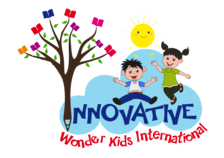Importance of language development in preschool programs
Preschool is an important time for language development. Children at this age are like sponges, soaking up new words and language skills easily. When language development is emphasized in preschool programs, it sets a strong foundation for future academic success. Children who have a good grasp of language early on tend to excel in reading, writing, and overall communication skills later in life. Improving language development in preschool can also enhance social interactions and emotional regulation abilities. By incorporating creative approaches in preschool programs, teachers can make learning language fun and engaging for children, fostering a lifelong love for communication and language.
Traditional approaches to language development
Traditional approaches to language development in preschool programs focus on structured learning activities that involve vocabulary building, storytelling, and interactive games to help children grasp language concepts effectively. Teachers often use repetition and reinforcement techniques to enhance language skills in young learners. Group discussions and role-playing are commonly used to encourage verbal communication and language comprehension. Such methods aim to create a supportive environment for children to explore and practice language in a fun and engaging way.
Incorporating creativity in language development
To make language learning fun for preschoolers, educators can integrate creative activities such as storytelling, puppet shows, and arts and crafts into the curriculum. These engaging methods not only enhance language skills but also foster imagination and creativity in young learners.
Role of storytelling in preschool language development
Storytelling plays a crucial role in preschool language development. Children are captivated by stories, and they help expand their vocabulary and comprehension skills. Reading stories aloud to preschoolers can enhance their listening skills and cognitive abilities. Engaging children in interactive storytelling can encourage them to express themselves verbally and improve their language fluency. Additionally, storytelling fosters creativity and imagination in children, making language learning an enjoyable process.
Music and movement for enhancing language skills
Music and movement play a vital role in developing language skills in preschoolers. When children engage in activities like singing songs, dancing, and playing musical games, they improve their listening and speaking abilities. These activities also help children learn new words and enhance their vocabulary. Overall, incorporating music and movement into preschool programs can significantly boost language development in young children.
Play-based learning for language development
Play-based learning is an effective way to help preschoolers develop their language skills. During play, children naturally engage in conversations, listen to and follow instructions, and use words to express themselves. This approach allows them to learn language in a fun and interactive manner, making the learning process enjoyable and engaging. Research shows that children who participate in play-based learning tend to have better language development outcomes compared to those who learn through traditional methods. Some benefits of play-based learning for language development include improved vocabulary, better communication skills, and enhanced social interactions. Incorporating play-based activities into preschool programs can greatly support children in building a strong language foundation for their future academic success.
Art and crafts activities to promote language growth
Engaging preschoolers in art and crafts activities can be an effective way to help them develop language skills. Through activities like drawing, making collages, and creating crafts, children can improve their vocabulary, communication, and storytelling abilities in a fun and interactive manner. These activities encourage children to express themselves, describe their creations, and engage in conversations with their peers and teachers, facilitating language growth in a creative and enjoyable way.
Technology resources for language development in preschool
Technology can enhance language development in preschoolers. Utilizing interactive apps, educational games, and age-appropriate software can engage children in learning activities. Tablets and computers with suitable programs can help improve vocabulary, grammar, and communication skills. Educators can integrate technology resources to make language learning fun and effective for young learners.
Parent involvement in supporting language development
Parents play a crucial role in supporting their child’s language development. Engaging with your child in conversations, reading books together, and singing songs can all enhance their language skills. Creating a language-rich environment at home by talking about daily activities and encouraging your child to ask questions can also aid in their language development. Involving parents in language activities at school and providing resources for parents to continue language-rich interactions at home can foster a child’s language growth.
Successful strategies for implementing creative language development in preschool programs
Preschool programs can enhance language development through fun and creative methods. Here are some effective strategies for implementing creative language development:
- Encourage storytelling and imaginative play to spark children’s imaginations and language skills.
- Use songs, rhymes, and chants to make language learning engaging and memorable.
- Introduce vocabulary through hands-on activities and interactive games.
- Provide opportunities for group discussions to encourage communication and social skills.
- Create a print-rich environment with books, labels, and visual aids to support language learning.
These strategies can help preschoolers develop strong language skills in a creative and enjoyable way.


